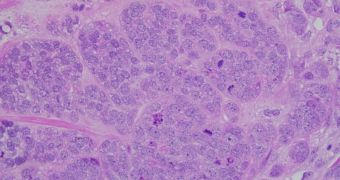African-American women are generally at higher risk of negative outcomes when breast cancer is involved. In a new study, researchers shed some light on the mechanisms underlying this susceptibility, in an advancement that could potentially lead to new therapies for this segment of the population.
The new research was carried out by investigators with the Department of Biology at the Georgia State University, in Atlanta. Their work was focused entirely on African-American women with breast cancer. The team found that the protein HSET plays an important role in determining outcomes.
According to GSU associate professor Ritu Aneja, PhD, the leader of the study, it would appear that higher levels of this protein leads to worse outcomes in this subgroup of the general population.
Details of the research were presented at the Sixth Conference on the Science of Cancer Health Disparities in Racial/Ethnic Minorities and the Medically Underserved, which the American Association for Cancer Research (AACR) held in Atlanta, Georgia, between December 6-9.
Statistically, African-American women tend to develop breast cancer when they are much younger than non-Hispanic white women. At the same time, their conditions are more likely to spread, metastasize, recur, and result in death over the years. This is why finding the HSET biomarker is so important.
Now that scientists know what molecules are over-expressed in breast cancer, they can start developing tests for detecting the disease earlier on. This could potentially lead to increased survivability rates.
“Our data indicate that HSET represents a potential new biomarker for poor breast cancer outcome among African-American women with the disease,” Aneja explained at the conference.
“Using this biomarker effectively could give oncologists critical new information and potentially save lives by allowing earlier recognition of more aggressive breast cancers in African-American women, with the subsequent use of more customized treatment regimens to better manage disease,” she added.
HSET production is increased significantly in triple-negative breast cancer, which affects African-American women the most, as well as in lung cancer that eventually metastasizes to the brain. Therefore, a test centered on this biomarker could help oncologists and patients in two separate areas.
“We were surprised to find that HSET levels appeared to be a better predictor of cancer outcome than other routinely used breast cancer predictors, such as assigning triple negative status. We are working around the clock to define ways in which this new biomarker can be used most effectively and as soon as possible in the clinical setting,” Aneja concluded.

 14 DAY TRIAL //
14 DAY TRIAL //